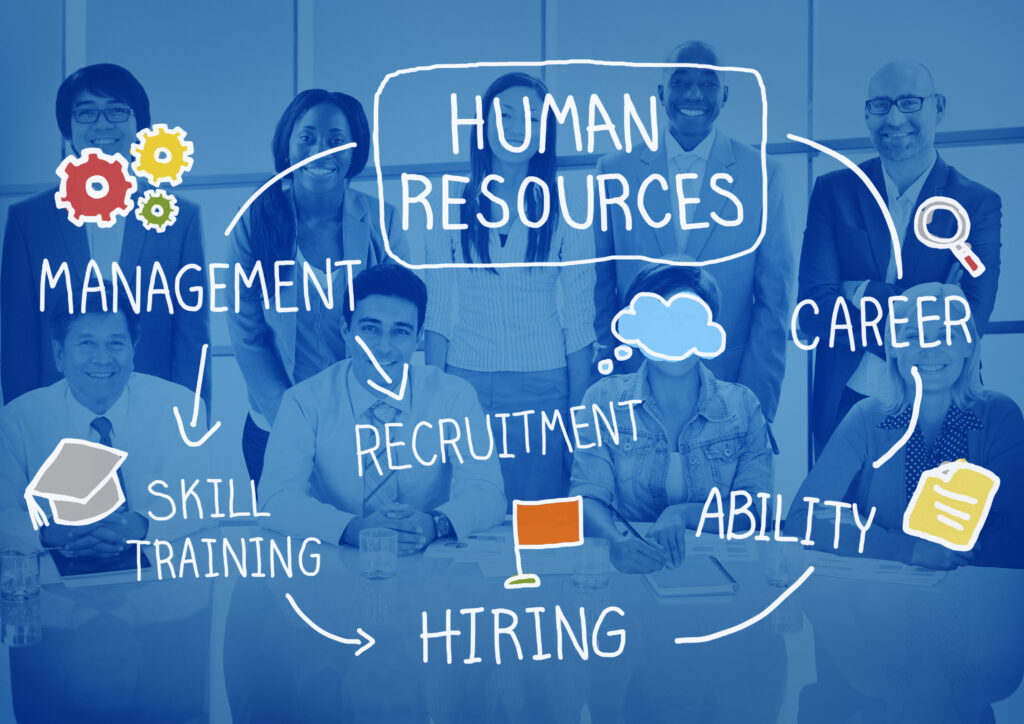In today’s fast-paced business environment, leveraging technology is no longer optional but a necessity. One of the critical areas where technology can make a substantial difference is Human Resources (HR). Implementing HR software can be a game-changer for companies aiming to optimize their operations, enhance employee engagement, and drive overall business success. Here’s why your company needs HR software to thrive in a competitive landscape.
Streamlining HR Processes
HR departments handle numerous tasks, from recruitment and onboarding to payroll and performance management. Traditional methods often involve a lot of paperwork and manual data entry, which can be time-consuming and prone to errors. HR software automates these processes, reducing administrative burdens and freeing up HR professionals to focus on strategic initiatives.
Recruitment and Onboarding
Finding and hiring the right talent is crucial for any company. HR software simplifies the recruitment process by allowing HR teams to post job openings on multiple platforms, track applications, and manage candidate information in one place. Once a candidate is hired, the onboarding process can be managed efficiently through automated workflows that ensure new hires complete necessary paperwork, receive proper training, and integrate smoothly into the company culture.
Payroll and Benefits Administration
Managing payroll and benefits manually can be a nightmare. HR software ensures accurate and timely payroll processing, compliance with tax laws, and easy management of employee benefits. This reduces the risk of errors and ensures employees are paid correctly and on time, which is essential for maintaining morale and trust.
Performance Management
Regular performance reviews are vital for employee development and organizational growth. HR software provides tools for setting goals, tracking progress, and conducting evaluations. This helps in identifying top performers, addressing areas of improvement, and ensuring that employees are aligned with the company’s objectives.
Enhancing Employee Engagement and Retention
Employee engagement and retention are critical factors for business success. Disengaged employees are less productive and more likely to leave the company, which can be costly in terms of recruitment and training. HR software can significantly enhance employee engagement and retention through various features.
Communication and Feedback
HR software often includes communication tools that facilitate better interaction between employees and management. Regular feedback and open communication channels help in addressing issues promptly, fostering a positive work environment, and enhancing employee satisfaction.
Employee Self-Service
Empowering employees with self-service options for tasks like updating personal information, accessing pay stubs, and requesting time off can improve their experience and reduce the workload on HR teams. This autonomy can lead to higher job satisfaction and a sense of ownership among employees.
Recognition and Rewards
Recognizing and rewarding employees for their hard work is essential for motivation. HR software can track employee achievements and facilitate reward programs that acknowledge their contributions. This not only boosts morale but also encourages a culture of excellence and continuous improvement.
Data-Driven Decision Making
In the digital age, data is king. Companies that leverage data to make informed decisions are more likely to succeed. HR software provides valuable insights through comprehensive reporting and analytics.
Workforce Analytics
HR software can generate detailed reports on various aspects of the workforce, such as turnover rates, employee performance, and recruitment metrics. These insights help in identifying trends, pinpointing problem areas, and making data-driven decisions to improve HR strategies.
Compliance and Risk Management
Staying compliant with labor laws and regulations is crucial to avoid legal issues and financial penalties. HR software helps in maintaining compliance by keeping track of regulatory changes, managing employee documentation, and ensuring that the company adheres to all necessary guidelines.
Strategic Planning
With accurate data at their fingertips, HR leaders can contribute more effectively to strategic planning. They can forecast hiring needs, plan for succession, and align HR initiatives with the company’s long-term goals. This strategic approach ensures that the company is well-prepared to meet future challenges and opportunities.
Increasing Operational Efficiency
Operational efficiency is key to staying competitive in today’s market. HR software enhances efficiency by automating repetitive tasks, improving communication, and providing easy access to information.
Automation of Routine Tasks
Routine tasks like scheduling interviews, sending reminders, and processing leave requests can be automated with HR software. This not only saves time but also ensures that these tasks are completed consistently and accurately.
Centralized Information
HR software provides a centralized repository for all employee-related information. This makes it easy for HR teams to access and update records, reducing the time spent on administrative tasks and minimizing the risk of errors due to outdated information.
Improved Collaboration
With HR software, different departments can collaborate more effectively. For instance, managers can access performance data to make informed decisions about promotions or training needs. This collaborative approach leads to more cohesive and efficient operations across the company.
Supporting Remote Work
The rise of remote work has changed the way companies operate. HR software plays a crucial role in managing a remote workforce effectively.
Remote Onboarding
Onboarding remote employees can be challenging. HR software streamlines this process by providing digital tools for completing paperwork, conducting training, and integrating new hires into the company culture, regardless of their location.
Time and Attendance Tracking
Tracking the time and attendance of remote workers can be complex. HR software offers solutions for remote clock-ins, tracking work hours, and managing time-off requests, ensuring that remote employees are accountable and their work is accurately recorded.
Employee Engagement
Keeping remote employees engaged requires a different approach. HR software facilitates virtual communication, regular check-ins, and digital recognition programs, helping remote workers stay connected and motivated.
Cost Savings
Investing in HR software can lead to significant cost savings in the long run.
Reduced Administrative Costs
By automating many HR processes, companies can reduce the need for extensive administrative staff. This leads to lower labor costs and allows HR professionals to focus on more strategic tasks.
Minimizing Errors
Errors in payroll, benefits administration, and compliance can be costly. HR software reduces the risk of such errors, leading to cost savings and protecting the company from potential legal issues and fines.
Improved Employee Retention
High turnover rates can be expensive due to the costs associated with recruiting and training new employees. By enhancing employee engagement and satisfaction, HR software helps in retaining talent, thereby reducing turnover costs.
Scalability
As your company grows, so do your HR needs. HR software provides the scalability required to manage an expanding workforce.
Handling Growth
Whether you’re opening new offices, expanding your team, or entering new markets, HR software can handle the increased complexity. It allows you to manage a larger volume of employee data, streamline processes across multiple locations, and ensure consistent HR practices throughout the organization.
Adapting to Changes
Business environments are constantly changing. HR software offers the flexibility to adapt to new regulations, changing workforce dynamics, and evolving business needs. This adaptability ensures that your HR processes remain efficient and effective, no matter what changes occur.
Conclusion
In conclusion, HR software is an indispensable tool for modern businesses aiming for success. It streamlines HR processes, enhances employee engagement, provides valuable insights for data-driven decision-making, increases operational efficiency, supports remote work, offers cost savings, and provides the scalability needed for growth. By investing in HR software, companies can not only improve their HR functions but also drive overall business success. If you haven’t yet adopted HR software, now is the time to make the change and reap the numerous benefits it offers.








